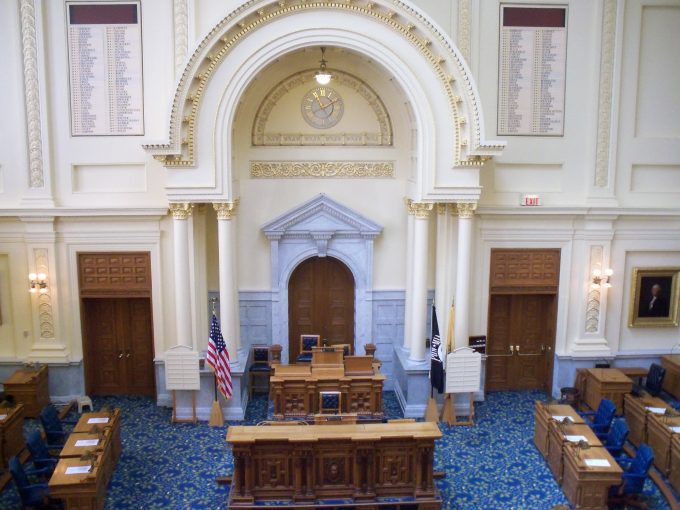
Thursday, 25 April 2019
…and the sound of a trumpet and the voice of words, so that those who heard it begged that the word should not be spoken to them anymore. Hebrews 12:19
The author now continues with the awesome display of the Lord which was witnessed on Mount Sinai, beginning this verse with, “and the sound of a trumpet.” That is recorded in Exodus 20:18 –
“Now all the people witnessed the thunderings, the lightning flashes, the sound of the trumpet.”
Next, he says, “and the voice of words.” That is recorded in Deuteronomy 4:12 –
“And the Lord spoke to you out of the midst of the fire. You heard the sound of the words, but saw no form; you only heard a voice.”
The two thoughts together (the trumpet and the voice) are again noted in Scripture as being ascribed to the Lord Jesus –
“I was in the Spirit on the Lord’s Day, and I heard behind me a loud voice, as of a trumpet, 11 saying, ‘I am the Alpha and the Omega, the First and the Last,” and, “What you see, write in a book and send it to the seven churches which are in Asia: to Ephesus, to Smyrna, to Pergamos, to Thyatira, to Sardis, to Philadelphia, and to Laodicea.’” Revelation 1:10, 11
In this, it is obvious that the Lord (Jehovah) of the Old Testament is the same as the Lord (Jesus) of the New.
Next, the author says, “so that those who heard it begged that the word should not be spoken to them anymore.” This is found in Exodus 20:19 –
“Then they said to Moses, ‘You speak with us, and we will hear; but let not God speak with us, lest we die.’”
The sound of the voice of the Lord was so overwhelming that they feared they would die if they heard anything more from Him directly. The idea being conveyed is that the words of law bring death. However, the words of grace bring life. Everything about the New Covenant, which came through Christ’s blood, is superior to that of the Old.
Life application: In giving the Ten Commandments on Sinai in the way He did, the Lord was checking the people’s hearts. By giving this display, later challenges could be held in only one of two ways – 1) faith that the same God who they heard and saw could handle any trouble, or 2) disobedience and rejection of the God whose power they had seen. As Moses said to them, “Do not fear; for God has come to test you, and that His fear may be before you, so that you may not sin.” Exodus 20:20
When the times of testing came, did they pass? The answer is, “No.” Israel repeatedly failed in this regard, and so their bodies fell in the wilderness during thirty-eight years of wandering, until that entire generation had perished. The same Lord came and presented Himself in human form in the person of Jesus. The people again failed to accept the word of the Lord and come to Him. In this, they went into an exile which has only ended in modern times. And even now, they still do not believe in the One who came to purify them from all unrighteousness. Pray for Israel – that eyes would be opened. The Lord is calling out to them, just as He has since their inception.
Lord God, if you were displeased with those who saw Your glory on Mt. Sinai and rejected it, how much more then when we… when we reject the display of Your glory in the Person of Jesus Christ. May we never fail to have faith during our times of testing. Given us wisdom in our minds and fortitude in our hearts to cling to our Lord. In His name we pray. Amen.




